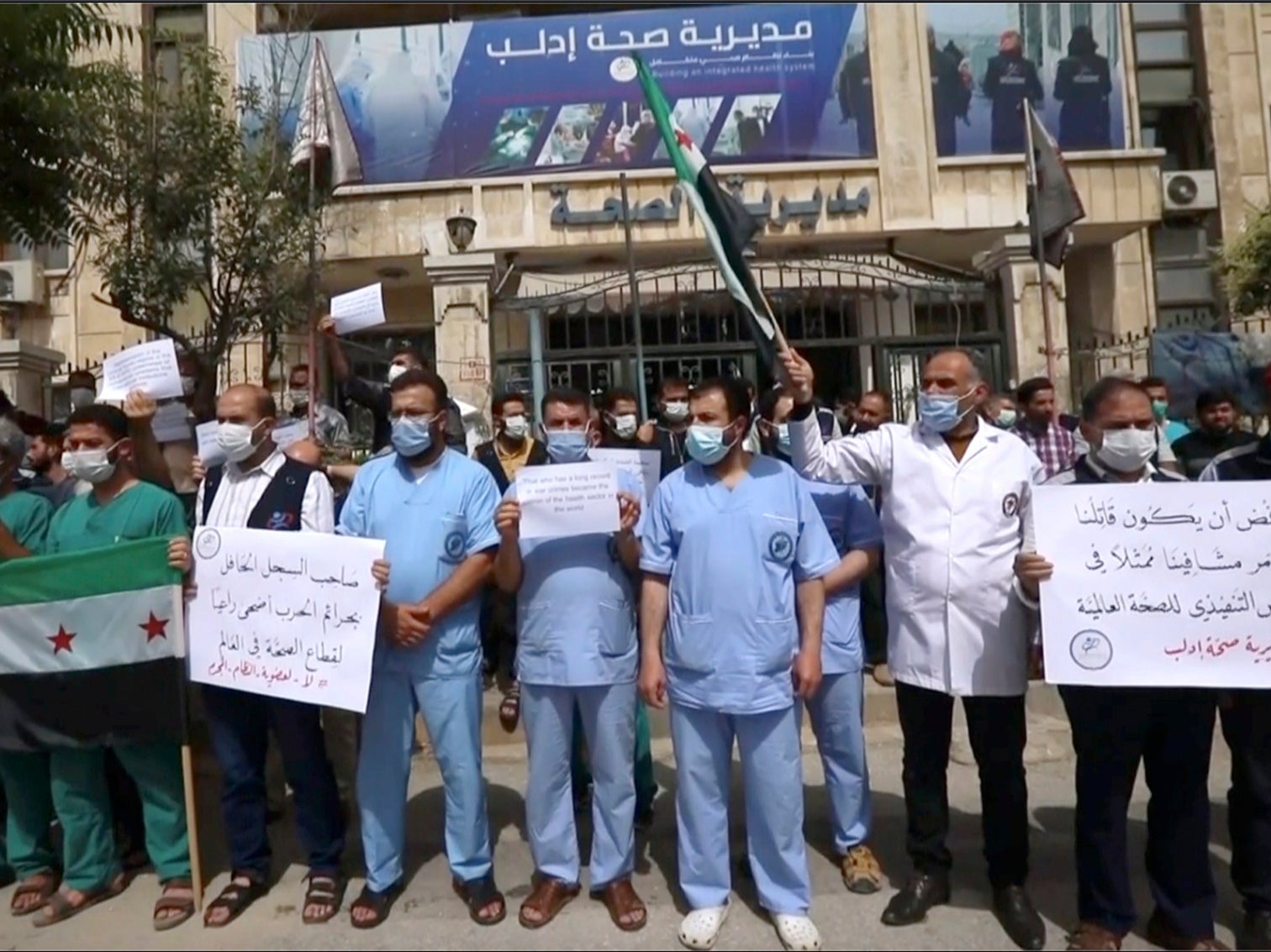Protests after Syria appointed to WHO’s executive board
Some fear Assad regime officials could use position to strangle aid lifeline to rebel-held Idlib

Your support helps us to tell the story
From reproductive rights to climate change to Big Tech, The Independent is on the ground when the story is developing. Whether it's investigating the financials of Elon Musk's pro-Trump PAC or producing our latest documentary, 'The A Word', which shines a light on the American women fighting for reproductive rights, we know how important it is to parse out the facts from the messaging.
At such a critical moment in US history, we need reporters on the ground. Your donation allows us to keep sending journalists to speak to both sides of the story.
The Independent is trusted by Americans across the entire political spectrum. And unlike many other quality news outlets, we choose not to lock Americans out of our reporting and analysis with paywalls. We believe quality journalism should be available to everyone, paid for by those who can afford it.
Your support makes all the difference.Medical workers in Syria have protested furiously after the country’s government was elevated to the World Health Organisation’s (WHO) executive board.
They took to the streets in rebel-held Idlib after learning the regime of Bashar al-Assad had been appointed to the body after a vote that faced no debate or opposition.
The WHO’s executive board members hold three-year terms. They set the agenda for its health assembly – the decision-making body – and implement its policies.
Protesters noted the grim irony of the Assad regime’s appointment, following its years of bombing raids on hospitals and clinics during Syria’s bloody, 10-year civil war.
“We reject the idea that our killer and he who destroyed our hospitals be represented on the executive board,” read a banner carried by some of the protesters on Monday. Some two dozen medical staff members protested outside the main health department.
Rifaat Farhat, a senior health official in Idlib, said Saturday’s vote “contradicts all international and humanitarian laws”.
Salwa Abdul-Rahman, a citizen journalist based in Idlib province – the last rebel stronghold in the country – said he feared a representative of the government could try to cut medical aid to the region, which is home to millions of people.
Syria's war has left some 500,000 people dead and driven millions more out of the country since it erupted in 2011.
Investigators working for the UN's main human rights body and international advocacy groups have reported that the Assad government and its allies – like Russia and Iran – have been responsible for the destruction of health care facilities.
Hundreds of medical centres have been bombed, mostly in government airstrikes. Half the remaining hospitals and health facilities are functioning only partially or not at all, while 70 per cent of Syria’s medical personnel have fled.
A WHO emergency appeal for Syria issued in March said at least 12.4 million people needed help, and that the “essential health service infrastructure such as hospitals and health care centres are in a state of disrepair”.
Additional reporting by agencies

Join our commenting forum
Join thought-provoking conversations, follow other Independent readers and see their replies
Comments